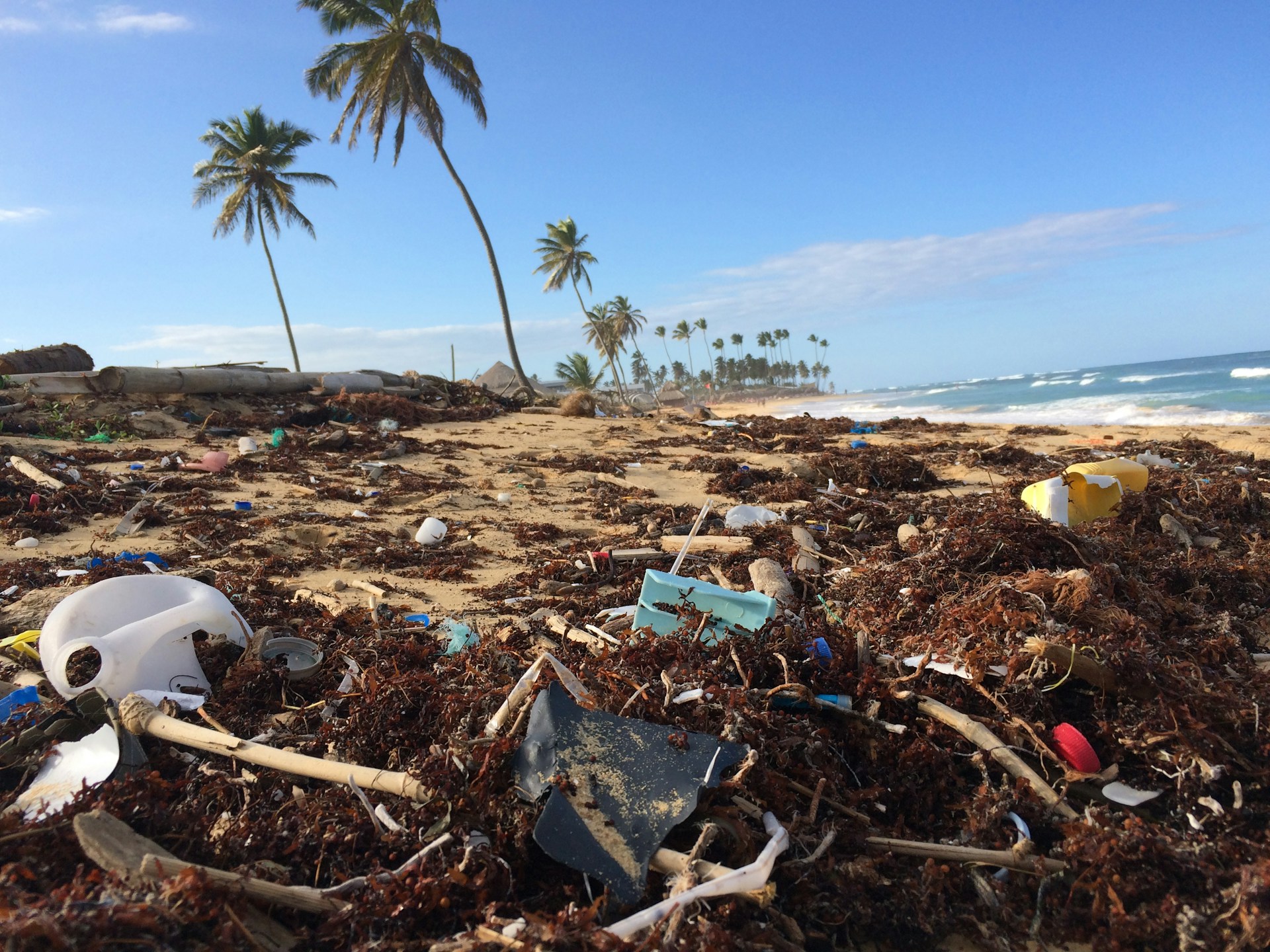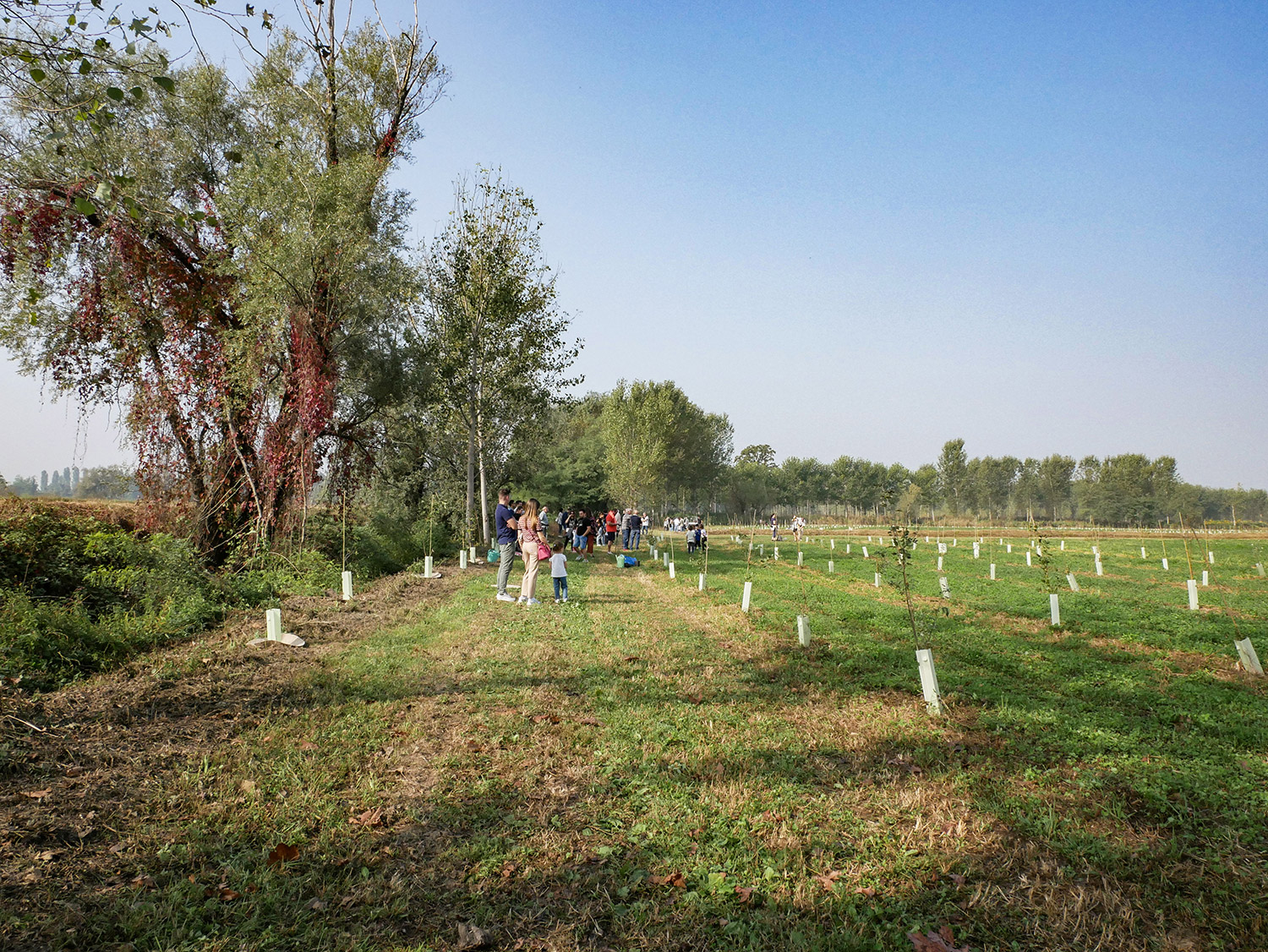
Updates from Mezzaluna della Biodiversità
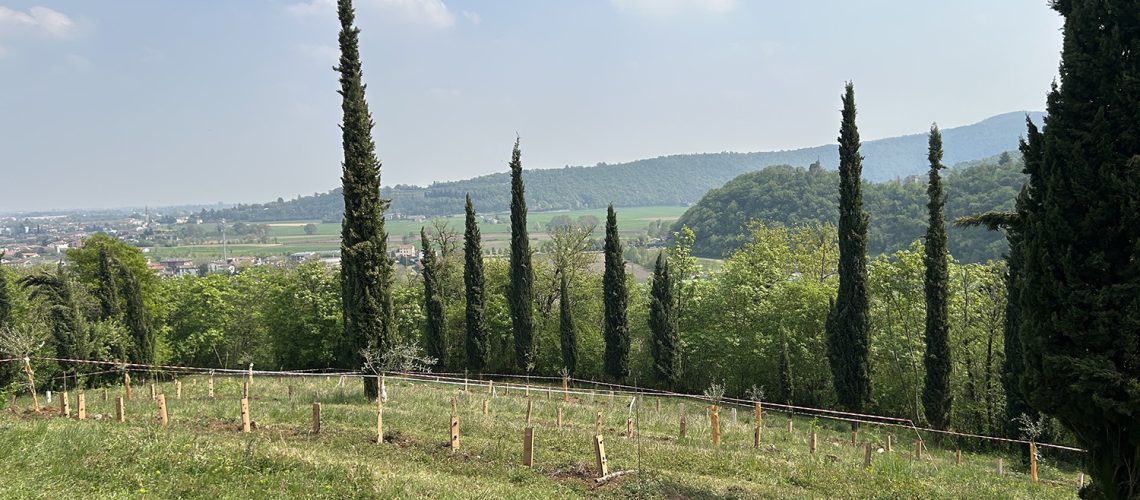
April 2025 – Updates from Mezzaluna della Biodiversità
In the heart of the Berici Hills lies the Mezzaluna della Biodiversità, a reforestation project that aims to create a complex and diverse forest ecosystem. Here, planting follows a precise pattern that alternates fruit trees, forest plants and shrubs to ensure a variety of species capable of sustaining themselves over time.
On the last day of planting new trees, we monitored the plants planted last autumn and found that they are in excellent condition and ready to face the summer.
Spring brings with it the first visible signs of biodiversity: numerous species of herbaceous vegetation are developing in the rows between the trees, which are not mowed specifically to encourage flowering and the presence of pollinators. Wild strawberries and rocket, buttercups and wild garlic are just some of the plants observed during this period.
This careful management of vegetation is essential to provide food and shelter for insects, but also to support a diverse wildlife population. During our last visit, we spotted roe deer, hares and various birds that live permanently in the area.
Watch the update video
October 2025 – Updates from Mezzaluna della Biodiversità
At the end of October 2024, we planted the first trees that companies and citizens have adopted to turn the Mezzaluna della Biodiversità into reality, where a virtuous agroforestry project is being implemented. Watch the update video.
In the province of Vicenza, in the Berici Hills, more precisely in Arcugnano, we are implementing an agroforestry project, i.e. a synergy between trees and shrubs with plants dedicated to agricultural production. The aim is to create a system in which food production does not come at the expense of nature. On the contrary, the aim is to increase biodiversity, protect the soil, respect the land and improve the landscape.
The combination of plant species also has a positive impact on insects, pollinators and wildlife, such as small birds, which will find shelter in the trees and sources of food. Trees and plants that are not treated with synthetic substances attract more insects, which in turn attract birds and other predators, helping to maintain the natural balance of habitats.
Watch the update video
SHARE
Other posts


World Earth Day: why we celebrate our planet on 22 April
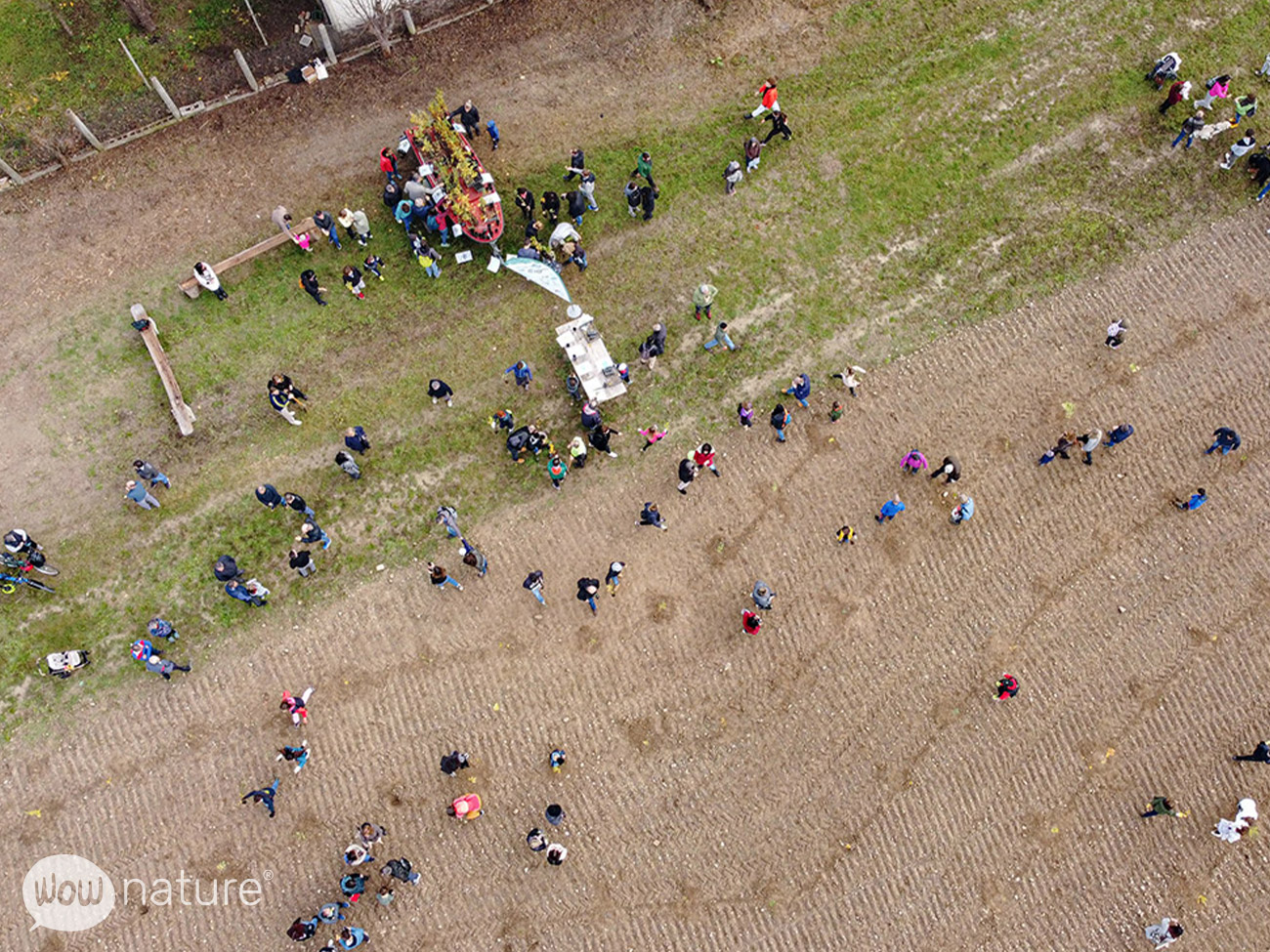
Update from Moranzani Forest
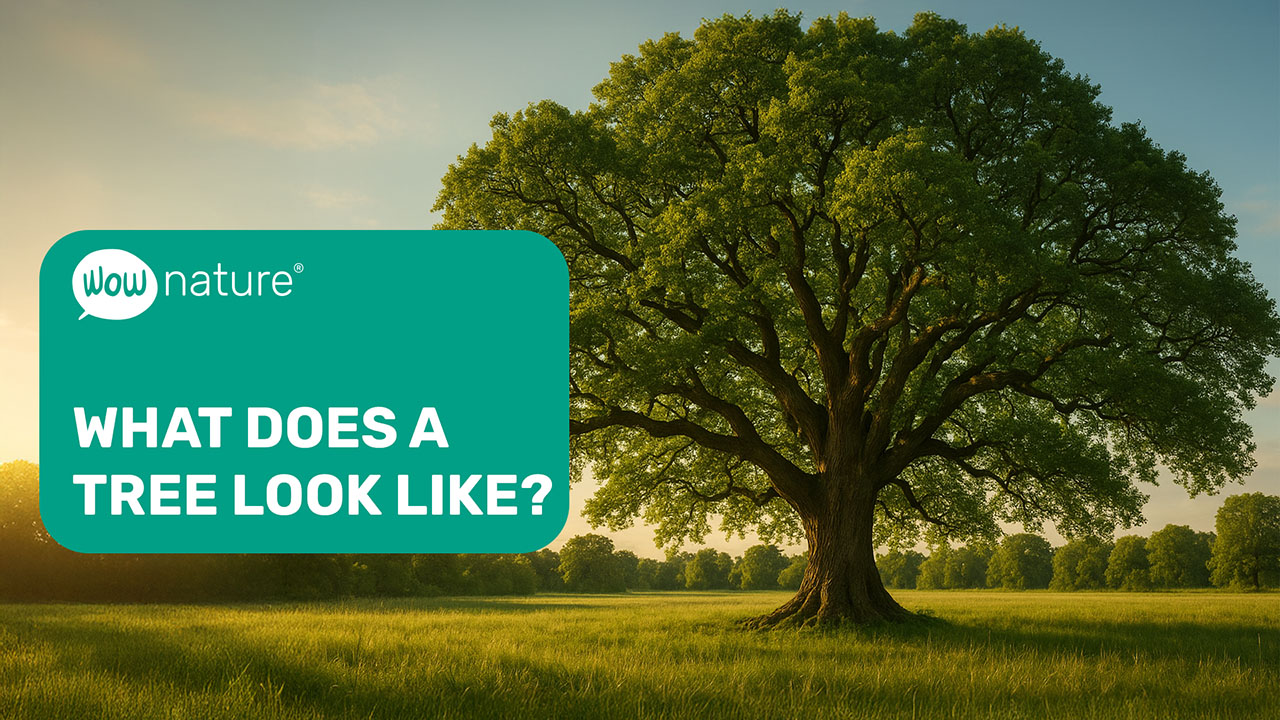
What does a tree look like?
